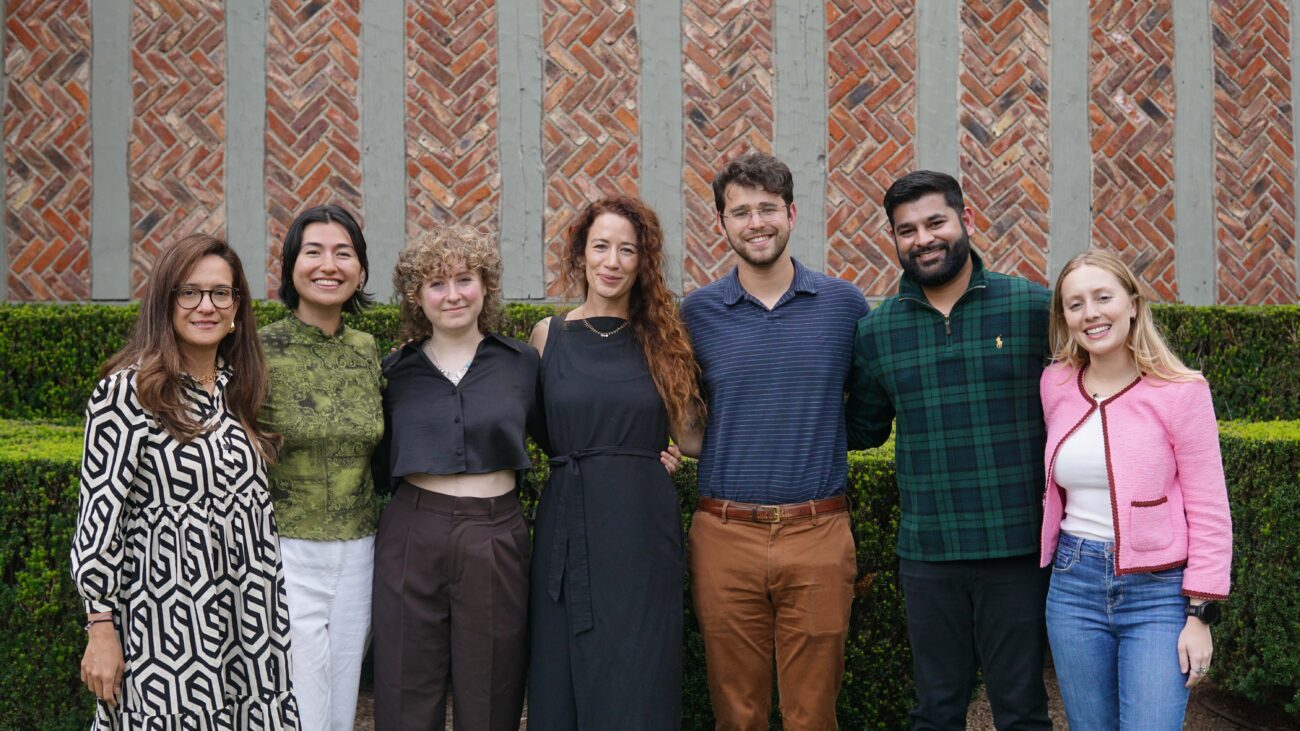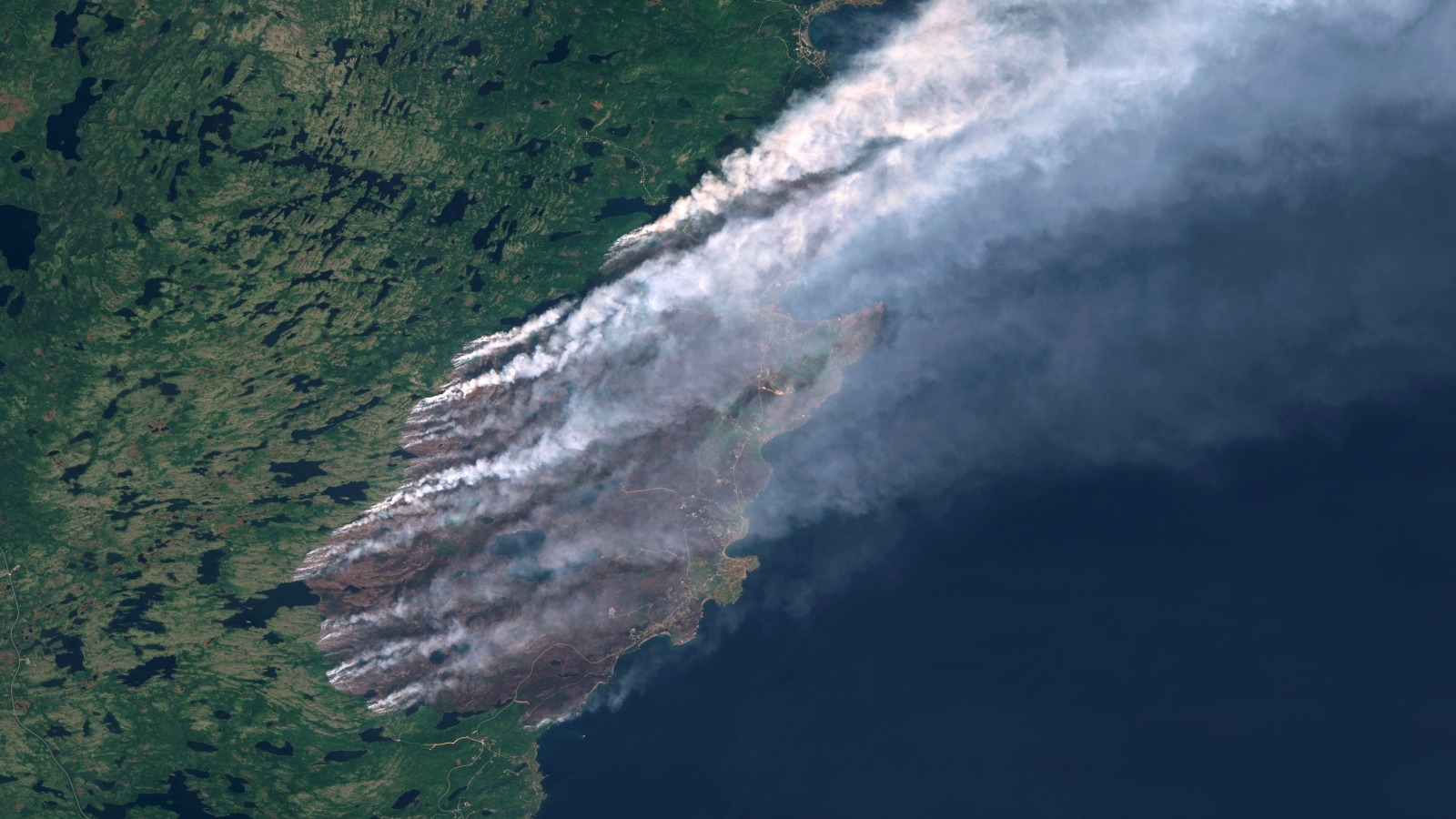Last week around 100,000 people gathered in New York City for Climate Week NYC. Several hundred of them made it to the Columbia Climate School for a showcase, which convened global and local leaders alike, including nine exceptional students representing impact initiatives within the school’s Global Impact Lab.
Incubated by the Office of Engagement and Impact, Climate School faculty worked with students this past summer on several areas of action and partnership to help universities pursue climate solutions. These five initiatives focus on disaster science, food, water, energy, and the built environment to bridge research-action gaps, and are designed to confront urgent, real-world problems.
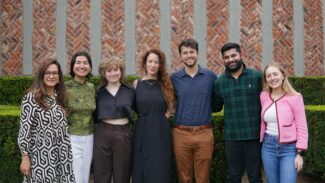
Senior director of engagement and impact Johanna Lovecchio and Climate School alumna Hailey Basiouny led the design of the summer cohort program, bringing the initiatives together to seed cross-sectoral and holistic change. The program prioritized co-production, partnering with Columbia’s Center for Science and Society to pilot a workshop to hone the who, what, when, where and why of each initiative.
Basiouny and Center for Science and Society program manager Tamara Jeffries co-developed the workshop series, inspired primarily by a 2024 publication on best practices in interdisciplinary climate research, co-authored by scientists at the Center for Science and Society and Lamont-Doherty Earth Observatory, which is part of the Columbia Climate School.
Prior to the Climate Week presentations, scholars, faculty and staff convened for a retreat at Foundation House in Greenwich, Conn., to share takeaways, hone messaging and identify next steps for each initiative. A creative and philanthropic community space, Foundation House offered a beautiful, generative environment from which to work, gather and celebrate the inaugural program.
Here’s a closer look at each initiative:
Disaster Genome Project
Experts have collaborated to produce more disaster science research than ever before, but we are also facing a world of accelerating disasters: more intense hurricanes, widespread wildfires and unprecedented flooding. The Disaster Genome Project, inspired by the genome mapping of DNA, is part of an effort to map the disaster “genome,” to ensure the growing body of disaster science is accessible and actionable by the practitioners who need it. Spearheaded by the director of the National Center for Disaster Preparedness, Jeff Schlegelmilch, M.A. in Climate and Society students Kalain Hosein, Olivia Johnson and Bhumi Sharma, worked with Schlegelmilch and Climate School lecturer and researcher Hope Sutherland to create a decision-support tool that harnesses current research to support better strategies, decisions and outcomes. The tool can access state-of-the-art research and provide answers to specific questions, accompanied by supporting multimedia products such as guides, case studies and podcast episodes.
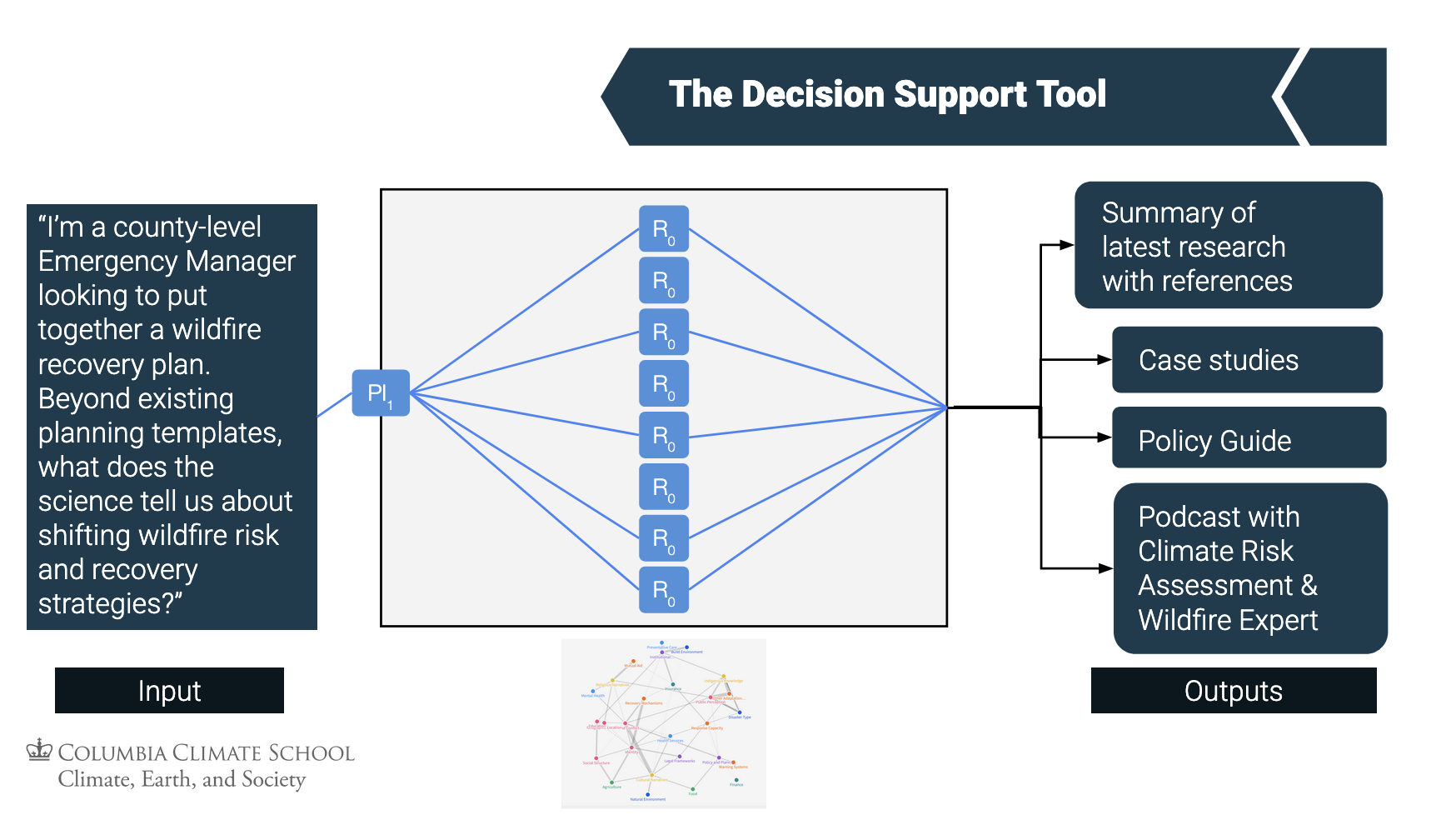
Alternative Proteins
We know that the global meat consumption and industrial livestock farming are contributing to conditions that worsen climate change, including deforestation and groundwater depletion. Protein Futures is a targeted effort under the Food for Humanity (F4Hi) collaborative network to assist in transitioning how we grow, distribute and consume food. Reducing meat production is, much like responding to disasters, context-specific, with many different potential pathways. Former director of F4Hi Jess Fanzo and F4Hi program manager Alison Rose worked with student Zoe Adamopoulos (M.S. in Sustainability Management) to map stakeholders and bring clarity to the alternative-protein ecosystem and identify parallel roadblocks from GMOs’ cautionary tale in order to uncover opportunities for alternative proteins to scale.

Plastics Policy Toolkit and Index
Despite sobering findings and growing awareness about the impacts of plastics in our bloodstreams and waterways, nations failed to agree upon imposing global, legally binding rules in a proposed UN global treaty against plastic pollution last month. With pressure on state and local governments to pick up this slack, Lamont research associate Beizhan Yan, students Belle Arenson (M.A. in Climate and Society) and Ethan Hackmeyer (M.S. in Sustainability Management) are paving a path forward. This summer Arenson created a plastic policy toolkit to enable AI-driven models to create a global plastic policy map, while Hackmeyer built the first component of a plastic impact index to provide manufacturers with critical information on the post-disposal lifecycle of fossil fuel-based plastics and explore a standardized social cost to plastic.

Just Transition Minerals
Transition minerals are critical to a just energy transition, but there is a growing imperative to do so in a way that minimizes environmental harms, human impacts and social inequities. Professor of electrochemistry Alan West and students Samantha Dady (M.A. in Climate and Society) and Pia Morrow (M.S. in Sustainability Management) have reimagined a social contract for mining involving the communities most impacted by the projects, building out informative case studies and convening Columbia’s own mineral research ecosystem to bring together experts traditionally siloed. Ultimately the question is, how can we mine the critical minerals needed for renewable technologies, grid upgrades and storage systems, like lithium, nickel, and cobalt, in a more sustainable and just way?

Adaptation Accelerator
There is a $359 billion annual investment gap in adapting the built environment to climate change, even as 75 percent of the infrastructure expected by 2050 had yet to be built as of 2018. The Adaptation Accelerator develops place-based action plans for climate adaptation with communities, governments, investors and philanthropy—linking ecological repair, resilient infrastructure planning and finance. Foundations for this work were laid by the Climate School’s Center for Resilient Cities and Landscapes, supporting more than 17 cities and agencies worldwide. Vanessa Brieva (M.S. in Sustainability Management), an experienced finance practitioner, collaborated with the Columbia Center for Sustainable Investment to test blended finance, applying these models to housing, mangroves and livelihoods in Cartagena, Colombia. Together with Graduate School of Architecture, Preservation and Planning (GSAPP) professor Kate Orff, Lovecchio, and associate GSAPP professor David Benjamin, the accelerator is seeking partnerships with development banks, investors, governments and cities to connect Columbia’s global expertise with localized adaptation needs.
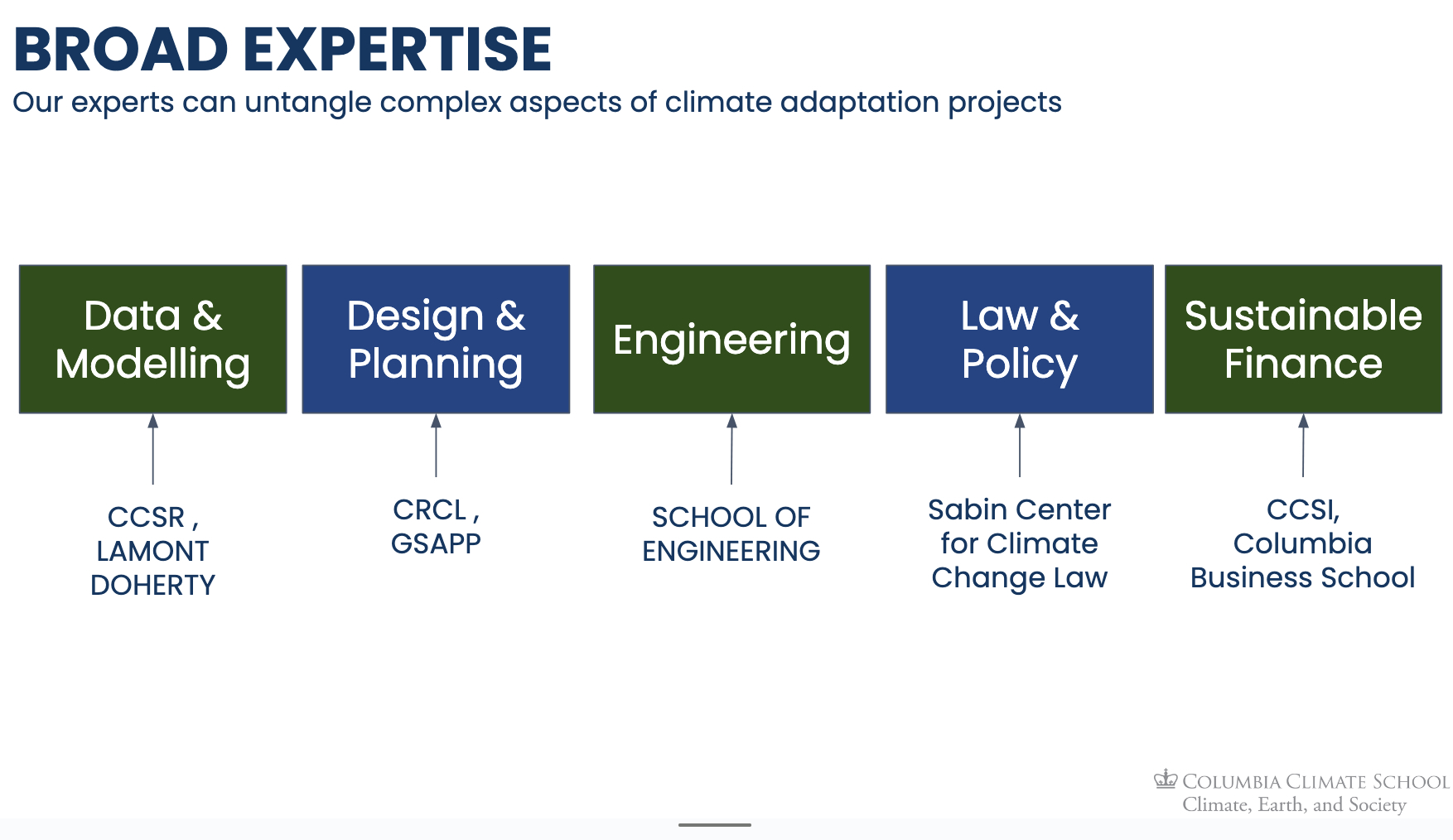
For these initiatives, scholars and faculty, the Global Impact Lab brings together the resources and momentum needed to press forward. The challenges we collectively face are immense, but so too is the growing network of leaders and solutions. We invite you to follow the work by these climate advocates and join them in the fight for a healthier future.
You can watch the scholar presentations, as well as the entire showcase, on Columbia Climate School’s YouTube channel.
Source link
Guest news.climate.columbia.edu

